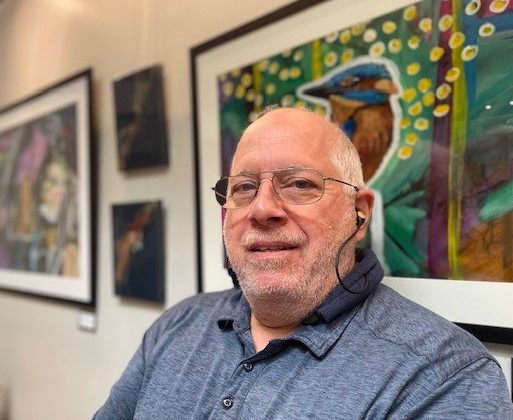For almost all of his life, through childhood and adolescence and well into middle age, Tom Gisler had no way to understand why he felt so different. When he finally was diagnosed with autism, he was 59 years old.
“Turns out I wasn’t lazy, I wasn’t stupid,” Gisler, who’s now 63, said with a smile. “My brain works differently. Knowing that is very freeing.”
Though the discovery came late, it also was a vindication, allowing him to believe he had done his best and had no reason for shame or guilt. Gisler now serves as a board member for the Autism Society Central Ohio, “and he’s amazing,” said Kathi Machle, the organization’s managing director.
“The autism community can’t be wholly run by adults who want things for their children. They’re only part of the story,” she said. “I have learned so much from Tom about what it’s like from the inside out. Living with my son, I mainly know it from the outside in.”
Services and resources for people who are older at diagnosis are scarce, Gisler said. That makes it especially important for them to be able to connect with each other. “Kids and adults need some contact with other autistic people,” he said. “What is normal? Normal is what you have in common with other people.”
He primarily connects with others online, in forums, on social media and through his YouTube page, My ASD Journey. “It is when we talk with others about these life experiences that we find something to compare our own experiences with,” Gisler said. “We just can’t talk with neurotypical people on the same level.”
Gisler encourages families to empower loved ones with autism instead of merely seeking to change behaviors. “Work with their minds, not against them,” he said. “If we are trying to regulate stimuli, or focus attention, and someone tries to change what works for us, how do you think that makes us feel?”
He didn’t benefit from such insights as he was growing up. “I just wanted to get through the day,” Gisler said. “What was a close friend? To me, it might have been someone who said hi to me. I don’t think I had much of a sense of self.”
After so many years of struggle, receiving a diagnosis was profound – and in many ways, a relief. “After finding this out, I feel like I can die in peace,” he said. “I didn’t give up. I stayed the course, and I have an answer.”


